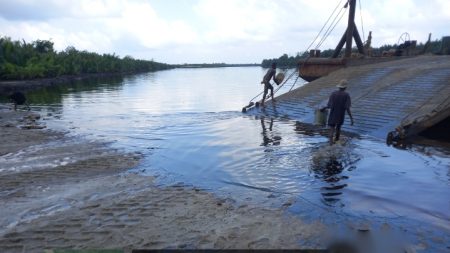 18 September 2012, Sweetcrude, ABUJA – THE Petroleum and Natural Gas Senior Staff Association of Nigeria, PENGASSAN, says it is opposed to the creation of multiple regulatory agencies in the nation’s oil and gas industry as contained in the new Petroleum Industry Bill, PIB, now before the National Assembly.
18 September 2012, Sweetcrude, ABUJA – THE Petroleum and Natural Gas Senior Staff Association of Nigeria, PENGASSAN, says it is opposed to the creation of multiple regulatory agencies in the nation’s oil and gas industry as contained in the new Petroleum Industry Bill, PIB, now before the National Assembly.
Speaking at the union’s third triennial branch delegates’ conference in Abuja, Mr. Isah Ibrahim, outgoing president of PENGASSAN, Department of Petroleum Resources, DPR, Branch, argued that the Bill if passed into law by the National Assembly will create multiple regulatory agencies for the oil and gas sector as against the popular clamour for a single effective regulatory agency.
He maintained that PENGASSAN expected DPR, which formed the nucleus of the technical committee set up on the PIB by the Minister of Petroleum, to have been able to see to the effect that the industry is handled by one functional agency rather than the multiple agencies the industry would be saddled with by the PIB.
“The PIB is a remarkable document that contains all the legal framework and requirements that will apply to the entire petroleum industry in Nigeria. It sets out to establish institutions and regulatory authorities for the oil and gas industry.
“However, the DPR has in the bill created multiple regulatory agencies both in the technical and commercial sectors of the oil and gas industry and this is a clear departure from the main thrust and intent for reform to make clear the different roles of government agencies that often have overlapping responsibilities.
“The government should in the PIB create a single regulatory agency to be instituted with clear-cut mandate of what is required in order to eliminate the confusions and help the industry work more efficiently.
“The advantage of having a single regulatory agency is that it is cost saving and free from unnecessary encumbrances as global oil and gas industry have consolidated into technology-driven industry that is optimally policed by a single and efficient government regulatory body,” he said.
Under the PIB, there are provisions for the creation of at least four agencies: Petroleum Technical Bureau, Upstream Petroleum Inspectorate, Downstream Petroleum Regulatory Agency, and National Petroleum Assets Management Corporation.
Ibrahim argued for instance that there was no need to create the Upstream Petroleum Inspectorate and the Downstream Petroleum Regulatory Agency at same time, saying “the same regulatory principles are applicable both in the upstream and downstream sectors particularly in the case of Nigeria where consolidated regulatory body would assure optimal utilisation of available resources”.



